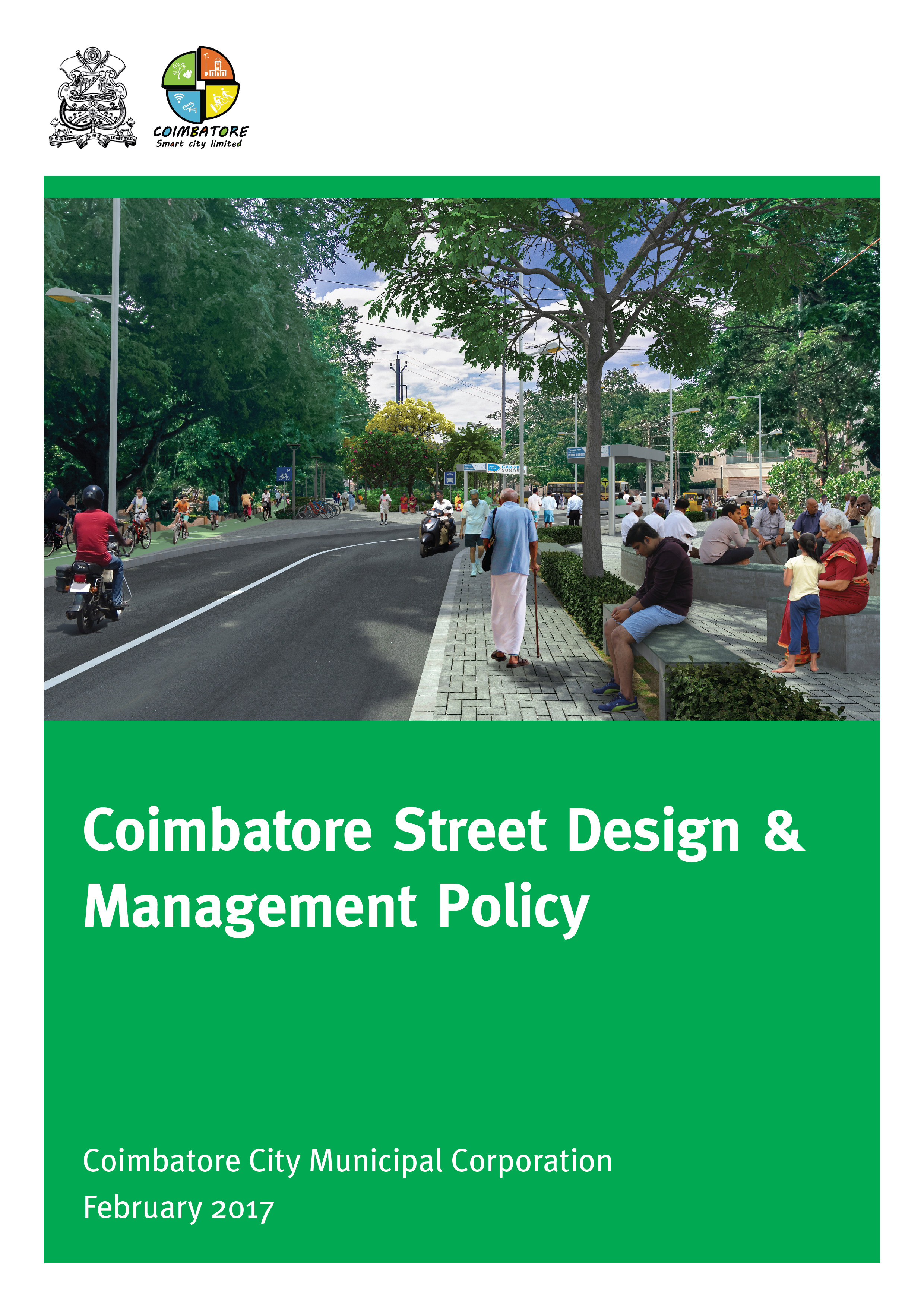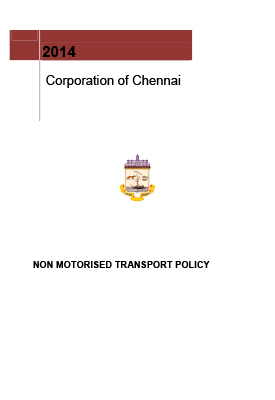Too often, transport planning has concentrated on infrastructure, traffic, costs, and benefits, with environmental factors limited to engineering consideration. However, mobility planning now focuses on the movement of “people, not vehicles’, a goal clearly expressed in the 2006 National Urban Transport Policy (NUTP).
In keeping with this approach, the Coimbatore City Municipal Corporation (CCMC) aims to create a policy environment that supports increased accessibility by prioritizing the use of walking, cycling, and public transport. CCMC has thus adopted a Street Design & Management Policy to ensure the implementation of high quality transport systems.
The Policy seeks to achieve a more equitable allocation of road space by incorporating a focus on non-motorised transport (NMT) and public transport (PT) in the planning, design, managing, and budgeting stages.











